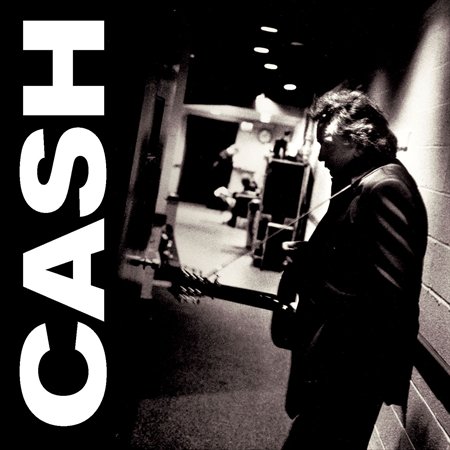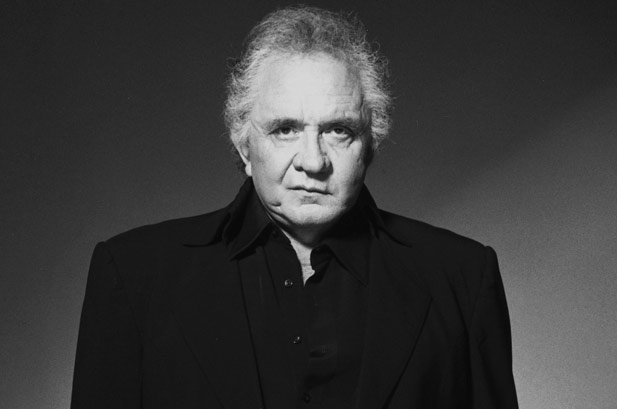
In the liner notes, Johnny Cash writes:
“The song is the thing that matters. Before I can record, I have to hear it, sing it, and know that I can make it feel like my own, or it won’t work. I worked on these songs until I felt like they were my own.”
| Released | October 17, 2000 |
|---|---|
| Genre | Country, americana |
| Length | 42:15 |
| Label | American Recordings |
| Producer | John Carter Cash, Rick Rubin |
American III: Solitary Man is the third album in the American series by Johnny Cash released in 2000 (and his 85th overall album). The album was notable for being Cash’s highest charting (#11 Country) solo studio LP since his 1976 One Piece at a Time, an album that reached No. 2 Country based on the title cut. To the present day, Cash’s studio albums for American have continued to sell & chart extremely well, as evidenced by the platinum #22 POP, #2 C&W American IV: The Man Comes Around (released one year before his death) and the gold, #1 on both charts, American V: A Hundred Highways.
I see a darkness (with guest Will Oldham, the composer of the song):
Between Unchained and Solitary Man, Cash’s health declined due to various ailments, and he was even hospitalized for pneumonia. His illness forced Cash to curtail his touring. The album American III: Solitary Man contained Cash’s response to his illness, typified by a version of Tom Petty’s “I Won’t Back Down”, as well as a version of U2’s “One”.
One (so much better than any other versions!):
American III: Solitary Man, just like Cash’s two previous albums produced by Rick Rubin, was a Grammy winner, taking home the award for Best Male Country Vocal Performance for Cash’s version of the Neil Diamond classic “Solitary Man”. Cash continued to receive critical appreciation for his American series of albums—on aggregate review site Metacritic.com the third album in Cash’s American series received a score of 80 (despite middling reviews from publications such as L.A. Weekly and Rolling Stone magazine) (from Wikipedia)
Track listing:
- I Wont Back Down
- Solitary Man
- That Lucky Old Sun
- One
- Nobody
- I See A Darkness
- The Mercy Seat
- Would You Lay With Me (In A Field Of Stone)
- Field Of Diamonds
- Before My Time
- Country Trash
- Mary Of The Wild Moor
- I’m Leavin’ Now
- Wayfaring Stranger

“You can stand me up at the gates of hell/ But I won’t back down”
Ryan Kearney
But American III‘s high point is its two-song centerpiece. The first is Will Oldham’s “I See a Darkness”, on which it becomes clear that, perhaps because of his neurological disorder, Cash’s voice isn’t as sure and strong as it once was. When he quavers, with Oldham singing backup, “Is there hope that somehow you can save me from this darkness?” the effect is absolutely devastating. You won’t listen to the song the same after this. The shivers will eventually leave your spine, but the residue remains.
The Mercy Seat:
That song’s transcendent power also stems from its production, which, although still sparse, is relatively lush. The organ and piano that rise to match the guitar remain in use for Nick Cave’s “The Mercy Seat”. Chronicling the first-person thoughts of a man being executed, this song, more than any other on the album, was written for Cash. Building to a rumbling crescendo, he belts out, “And the mercy seat is smokin’/ And I think my head is meltin’.” This would’ve brought even Gary Gilmore to tears.
Wayfaring Stranger:
“I See a Darkness” soars with the passion of a thousand gospel choirs
The Man in Black shows hints of gray on American III: Solitary Man, his first studio album since being interrupted by a series of serious illnesses in 1997. While the inevitability of aging has been the downfall of many of his contemporaries, Johnny Cash’s dark convictions and powerful presence have gone from rough hardwood to solid stone. The stark beauty of his 1994 release American Recordings and the warm, friendly collaborations on 1996’s Unchained combine to create two distinct moods: one of living-room jam sessions with invited friends, and another of stark solo (and near-solo) songs highlighting Cash’s years and stories. Partnering once again with Tom Petty, the two join together on Petty’s own “I Won’t Back Down” and the Neil Diamond-penned title track. Cash also lays his lonesome hands on U2’s “One” and reunites with fellow outlaw Merle Haggard on the stubborn “I’m Leavin’ Now.” These duets and well-known covers show an inviting side of Johnny Cash.
But the real highlights of the album are those reminiscent of his American Recordings songs; they feature just the man and his guitar, with nothing else to clutter the story. The creaks and despair of the vaudeville song “Nobody” tell of a man who has become hardened by his solitude, while the Palace hymn “I See a Darkness” soars with the passion of a thousand gospel choirs, even though there are only two men singing. Although at times it is difficult to hear pastTom Petty’s growl or Sheryl Crow’s young harmonies in the more popular songs Cash covers, these obscure prison songs and country ballads sound as honest and heartfelt as his own compositions. At age 68, his warm baritone may waver but his passion never does.
– Hallgeir